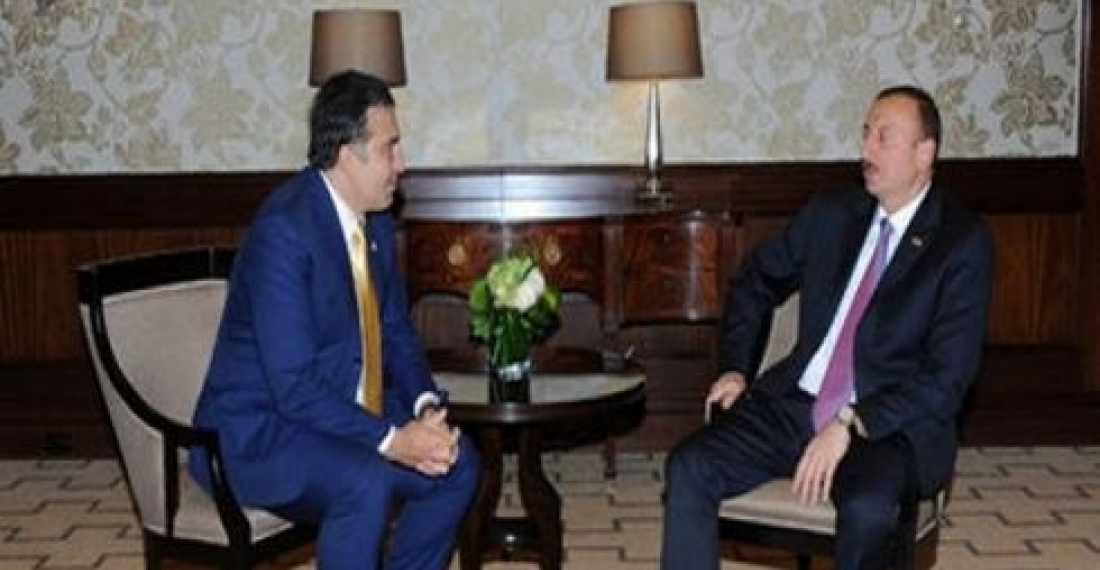Президент Азербайджана, Ильхам Алиев, и президент Грузии, Михаил Саакашвили, встретились в Чикаго в попытаться урегулировать территориальный спор, который создал напряженность в отношениях между двумя странами.
Спор связан с монастырским комплексом Давида Гареджи и начался после того, как азербайджанские пограничники 6 мая дислоцировались на спорной границе, проходящей через монастырский комплекс, не допуская посетителей из Грузии к некоторым из участков комплекса.
Монастырский комплекс, строительство которого началось в 6-м веке, находится в полупустыне Гареджи примерно в 70 км к юго-востоку от Тбилиси и является одним из важнейших культурных и религиозных наследием Грузии и домом грузинских православных монахов. Однако со времен Советского Союза граница между двумя странами пролегла через комплекс. Вопрос о демаркации границы находится на рассмотрении двух стран на протяжении нескольких лет и не ясно, что спровоцировало последние события.
Азербайджан становится все более важным инвестором в экономику Грузии и через Грузию проходит часть нефтепровода Баку-Тбилиси-Джейхан, который транспортирует азербайджанскую нефть на европейские рынки.
По неподтвержденным данным, президенты договорились создать специальную группу для рассмотрения этого вопроса.
Источник: commonspace.eu
Фото: Президент Грузии, Михаил Саакашвили, и президент Алиев на встрече в Чикаго 19 мая 2012 года (фото любезно предоставлено пресс-службой президента Азербайджана).
Commentary
Встреча Алиева и Саакашвили в Чикаго, попытка избежать эскалации вокруг споров по монастырскому комплексу Давид Гореджи.







